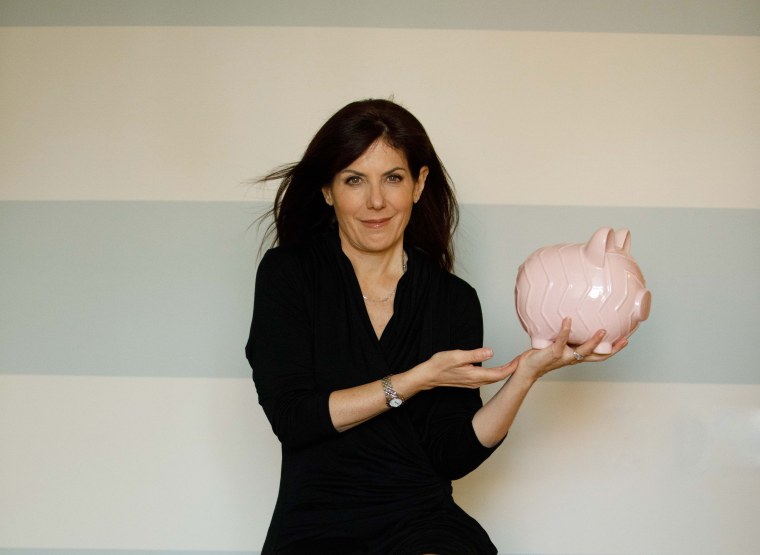Everyone makes money mistakes – including me. Personal finance is intimidating enough without feeling like you have to spend and save perfectly in order to have a shot at comfort, success or happiness.
It’s important to remember, however, that perfect is not always possible when it comes to your finances. There are money questions with correct answers. For example, what sort of life insurance should you buy? (Generally, term life insurance. It’s the only way for most people to afford as much coverage as they really need.)
But there are other money questions with answers that aren’t so black and white. For example, what’s the best mutual fund for you? Or, should you buy X, Y or Z stock? I could give you a very educated, well-researched answer that could turn out to be wrong. That’s because markets are unpredictable and things happen to companies that we don’t anticipate.
Would buying those mutual funds or stocks show up on my list of mistakes? No. A true investing mistake would be not diversifying your portfolio enough to accommodate for the fact that some stocks or mutual funds are not going to perform as expected. With that caveat, here are the four money mistakes I regret.
Mistake #1: Withdrawing from a 401(k)
When I left my first job back in 1988, I withdrew my balance from the 401(k), took the nice little check and went shopping. It was a huge mistake. Maybe my biggest ever. Because if I had left that money in the account, or rolled it into an IRA where I continued to add to it (my next job didn’t have a retirement plan), it could have grown into serious money.
I withdrew the money for the reasons many people do: Lack of understanding of what this retirement account was and not realizing that time and compound interest were two of my best friends. What’s worse is I didn’t actually need the money at the time. There was no financial emergency.
Here’s the bottom line: Americans have about 12 different jobs on average over the course of their career these days. If you withdraw every time you change jobs, you’ll have little to nothing left to retire on. Either leave the money to grow in your current plan, roll it into a new plan or into an IRA.
Mistake #2: Getting a late start
Thanks to my first mistake – and the fact that my next job didn’t have a retirement plan and I freelanced for a year after that – I didn’t really start saving in earnest until I was almost 30. I lost a good half decade, maybe more, in the aforementioned compound growth.
I’m not the only one. When surveys ask people what money mistakes they regret most, not starting to save and invest early is almost always near the top of the list.
If you’re struggling with student loan payments or low salaries that make it seem impossible to save, I suggest socking a little away anyway, particularly if you work for an employer that offers you matching dollars (an immediate return) on your contribution to a retirement plan. But even if you don’t, just $25 a week invested at a return of 6.5 percent during your 20s would yield over $18,000. Even if you don’t add any more to that money once you hit the big 3-0, at retirement you’d have more than $125,000. And if you keep pumping in just the same $25, you’d have $250,000.
Mistake #3: Prioritizing saving over debt repayment
My early jobs in New York didn’t pay especially well because, journalism. But I was always a pretty scrappy earner. I taught and tutored students taking their SATs on the side for $20 an hour, far more than I was earning at my day job. And I was always hustling for freelance writing work.
I managed to save some of that money and pretty soon I had a good $5,000 in my savings account. Simultaneously, though, I was leaning pretty heavily on my first Mastercard. The savings account (this was the 80s) was paying 7 percent interest. That’s amazing by today’s standards, but contrast that with the 19.9 percent I was paying on my credit card debt — it was and continues to be a losing proposition.
So, why did I do it? Because having money in the bank felt safe. It’s a mistake many women continue to make today – not just by prioritizing saving over debt, but by prioritizing it over investing. Consider: $1,000 in the average bank savings account over the last 10 years would now be worth about $1,010. The same $1,000 in the average balanced mutual fund over the last 10 years would be worth closer to $3,000. That’s how wealth is built.
Mistake #4: Being susceptible to sales
A good sale is like good chocolate: Hard to resist. When I get the notification from one of my favorite websites that everything is 30 percent off, or wander past a great store only to see new markdowns advertised, I can feel the excitement start to build. And I’ve ended up with mistakes in my closet – things I would not have bought at regular price – as a result.
I’ve dealt with this in a variety of ways: a self-imposed ban on sale merchandise that lasted about six months, pausing the purchase for 24 hours before allowing myself to pull the trigger, and frequent returns. In fact, I think the best remedy is simply acknowledging this is a struggle for me. A little self-awareness doesn’t always work. But sometimes it means the shoes stay in the store.
